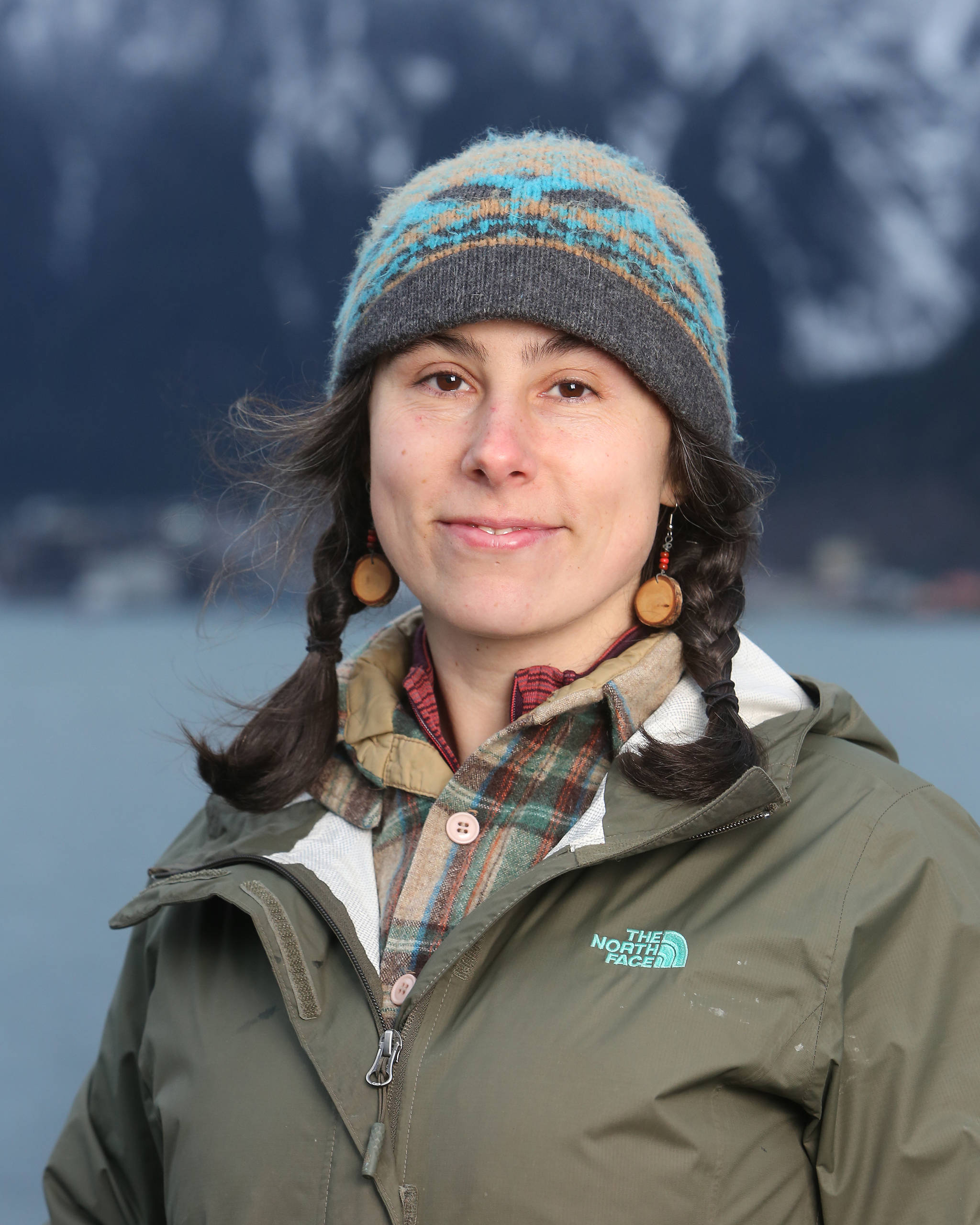By Anjuli Grantham
Eighty people opted to cram in the conference room at the Mendenhall Valley Library to hear Lisa Daugherty offer advice on composting on a sunny Saturday last March instead of bask under blue sky. This spring, Juneau Composts, Lisa’s business that gathers household food scraps and converts the scraps into compost, sold out of finished compost in a few days.
Interest in compost — both the finished product used as a soil amendment, and the process of converting organic materials into said product — is growing in Juneau, and for good reason. Home gardening is a burgeoning hobby as pandemic “victory gardens” appear in backyards across the community. Each of these gardens requires amendments like compost to convert Juneau’s notoriously poor soil into something that will grow plants and not just slugs.
Moreover, there’s vocal public opposition to the stench of the landfill, some of which comes from the organic materials that are disposed there. When organic materials like food waste, cardboard and yard debris decompose in the anaerobic environment of the landfill, they produce methane, a greenhouse gas that’s 37 times more potent than carbon dioxide. What could have been turned into compost becomes a major contributor to global warming. For this reason, of the 80 solutions to global warming recommended by Project Drawdown, composting is listed as 60.
There is no recent study that measures the volume of food waste or compostable materials that are landfilled in Juneau each year. Nonetheless, Waste Management reported in 2015 that 22,900 tons of municipal solid waste entered the landfill. The Environmental Protection Agency estimates close to 50% of municipal solid waste is compostable, with 22% of that discarded food. If Juneau fits the national pattern, 5,308 tons of food waste, or over 10 million pounds per year, are sent to the landfill. In 2020, Juneau Composts diverted 220,000 pounds of food waste from the landfill. That’s 2% of the total food waste Juneau likely generates.
“Most people are used to recycling paper or aluminum cans. What we need now is for people to look at food waste as a product that’s also worthy of recycling,” Lisa explains.
Turning food waste, paper, cardboard and yard debris into compost is a natural form of recycling, with the end product being a nutritious medium for nurturing more food. “But unlike paper or aluminum, when we recycle food waste, we keep those resources in the community. The recycling process happens here and the compost stays here,” explains Lisa.
Mixing nitrogen-heavy “green” organic materials with carbon-heavy “brown” organic materials to create the microbe-haven that is compost must move from the specialized realm of the gardener to everyday waste management practice if we are to maximize the benefits of composting. Treating compostable waste as a commodity can help Juneau reduce the 2% of our greenhouse gas emissions that derive from waste management, while solving other local problems. If we continue to throw away recyclable and compostable materials at our current rate, Juneau’s landfill will be full within 20 years.
If the whole community adopts composting as a waste management solution, Juneau can extend the life of the landfill, decrease Juneau’s methane emissions, boost the health of our soil, and produce something of value while living up to our values.
“This circular economy, this circular use of resources, is where the world needs to head,” says Lisa.
• Anjuli Grantham is a public historian and museum curator who serves on the board of Renewable Juneau and is Vice Chair of the Juneau Commission on Sustainability. Juneau’s Climate Change Solutionists is a series that features 10 local solutions to climate change and 10 people who exemplify the solutions. The solutions are based on Project Drawdown, a global project that quantifies the most effective methods for halting global warming. The series was produced with support from a Juneau ArtWorks grant. It appears weekly in the Juneau Empire.

